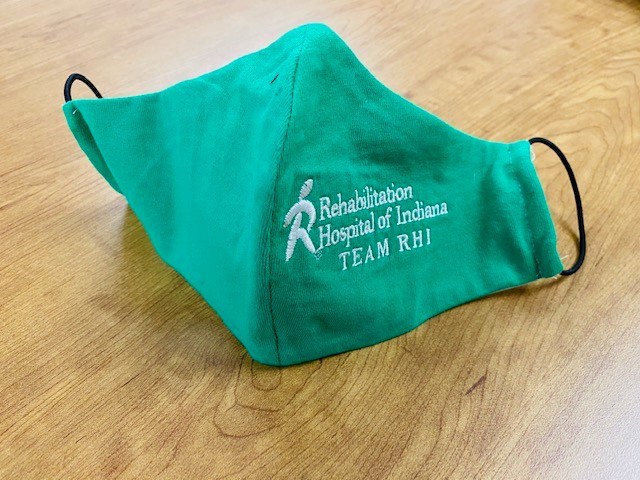Doctors, therapists help COVID-19 patients with long-lasting symptoms through rehab

By Melissa Crash
INDIANAPOLIS — For some people, COVID-19 symptoms are lasting much longer, and doctors are doing what they can to find out why.
At the Rehabilitation Hospital of Indiana, therapists and doctors are supporting patients post-COVID.
“No one really knew what these patients were going to look like,” said Margaret Wingate, a speech-language pathologist. “These patients are coming in really debilitated and really weak. [We are] providing a lot of assistance those first couple of days, but then they’re making a ton of progress pretty quickly.”
Sarah Humbird, an occupational therapist at the hospital added that “After they have survived this virus, and we’re just helping them re-learn those everyday [things] they need to get back home.”
“There’s definitely still deficits once they leave here, we’re just getting them to the point where they are safe enough to go home,” said Chelsey Sims, a physical therapist.
All three women are part of the post-COVID team at the rehabilitation facility. They have assisted 55 patients so far during the pandemic. It’s a challenging task that medical director Angela Carbone says they were prepared for.
“We quickly realized we needed to develop a unit to care what we thought initially was going to be COVID patients,” explained Carbone. “We developed this 19-bed unit to do that, and they never came. Then, we started getting the call, ‘Will you take our patients that are coming off of the ventilators?’ and we already had the unit set to go.”
Many patients told Carbone and her therapists that once they left the hospital and arrived at the rehab facility, they still felt like they were in a mental fog.
“Things that used to be really easy for them to do, like checkbook writing and simple math, organizational skills, all seem to be a little bit harder for them to do,” Carbone explained.
Breathing continued to be a challenge. As a rehab facility, doctors have to monitor patient heart rates as they help build back strength.
“We’re not talking about 110, we’re talking 140s, 150s, things you would see if someone was exercising or running a marathon,” said Carbone.
As the COVID patients recover, it’s the continuing anxiety that Carbone says she has noticed the most.
“Families weren’t able to be with them in the hospital holding their hand. Nurses do a great job doing that, our therapists do a great job with hand holding and physical touch, but it’s clearly not the same when it’s not your family members or friends that can come in and give you an encouraging word,” said Carbone.
It may take two to three weeks before patients are able to leave the rehab facility, but the progress that happens daily is a sense of hope for Carbone.
“We’re trying to bridge this gap,” she said. “We’re trying to get them home, but the hard work happens also when they’re home.”
Patients are in isolation at the rehabilitation hospital until two COVID tests come back negative.